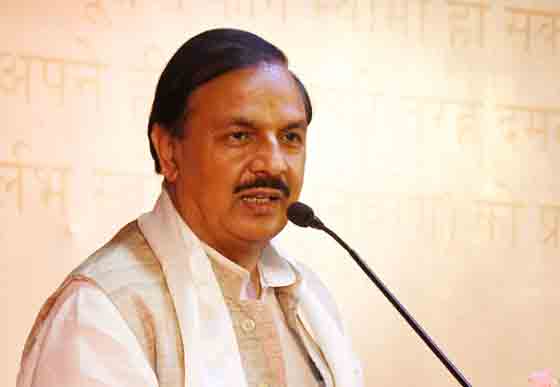Dr. Sharma stated that the Ministry, under the provision of Environment Protection Act of 1986, issued several notifications to mitigate increasing pollution. Ministry has issued Environmental Impact Assessment Notification 2006 for the management of developmental projects. He added that as per the notification, construction of new projects or activities or the expansion or modernization of existing projects or activities listed in the Schedule to the notification shall be undertaken only after the prior environmental clearance from the Central Government or as the case may be, by the State Level Environment Impact Assessment Authority.
The Minister pointed out that the project proposals are appraised by the concerned State Level Expert Appraisal Committees and while recommending the proposals for grant of clearance, environmental safeguards are prescribed so as to mitigate increasing pollution. He informed the House that the Government has comprehensively revised the waste management rules and has notified Solid Waste Management Rules, 2016, Plastic Waste Management Rules, 2016, and Bio-Medical Waste Management Rules, 2016 Hazardous and Other Wastes (Management and Transboundary Movement) Rules, 2016, E-waste Management Rules, 2016 and Construction and Demolition Waste Management Rules, 2016 for sound management of various types of wastes in the country.
Dr. Sharma averred that the status of various types of pollution is being monitored by the state governments through the State Pollution Control Board. As far as air pollution is concerned a decreasing trend has been observed in SO2 levels in cities like Delhi, etc. due to various interventions that have taken place in recent years such as reduction of sulphur in diesel, use of cleaner fuel such as CNG in Delhi & Mumbai and LPG in Hyderabad, Lucknow, Bangalore, etc. Other measures include implementation of Bharat Stage-IV emission norms for new passenger cars and Bharat Stage – III for two Wheelers in metro cities commensurate with improved fuel quality. There has been a change in domestic fuel used in kitchen: coal to LPG and CNG which may have contributed to reduction in ambient levels of SO2.
Dr. Sharma said that the Ministry of Housing and Urban Affairs (MoHUA) has overall mandate to take periodic review of the measures taken by the states and local bodies for improving their solid waste management practices. As per MoHUA Annual Report on implementation of SWM Rules, 2016 for year 2016-17 it is estimated that the total generation of solid waste is approximately 1,50,000 T/day. Approximately 90%(1,35000 MT/day) is collected. Out of the collected waste, 20% (27,000 MT/day) is processed and the remaining 80% (10,8000MT/day) is going to the dumping sites.
The Minister also stated that the water quality monitoring of water bodies at 2500 locations across the country under NWMP indicate that organic pollution is the predominant cause of water pollution which results in increase in Bio-chemical Oxygen Demand (BOD). Based on the BOD concentration criteria, CPCB has identified 302 polluted river stretches in 2015 against 150 polluted river stretches in 2008. The river stretches are polluted mainly due to discharge of untreated / partially treated sewage and discharge of industrial wastewater.Major steps taken by the Government to address the issues of water pollution in the country include the following:-
- Action to comply with effluent standards is taken by SPCBs / PCCs to improve the water quality of the rivers;
- Installation of Common Effluent Treatment Plants for cluster of Small Scale Industrial units;
- Issuance of directions for implementation of Zero Liquid Discharge;
- Preparation of action plan for sewage management and restoration of water quality in aquatic resources by State Governments;
- Installation of Online Effluent Monitoring System to check the discharge of effluent directly into the rivers and water bodies;
- Setting up of monitoring network for assessment of ambient water quality;
- Issuance of directions under Section 5 of Environment (Protection) Act, 1986 to industries and under Section 18(1)(b) of Water (Prevention and Control of Pollution) Act, 1974 and Air (Prevention and Control of Pollution) Act, 1981.


COMMENTS